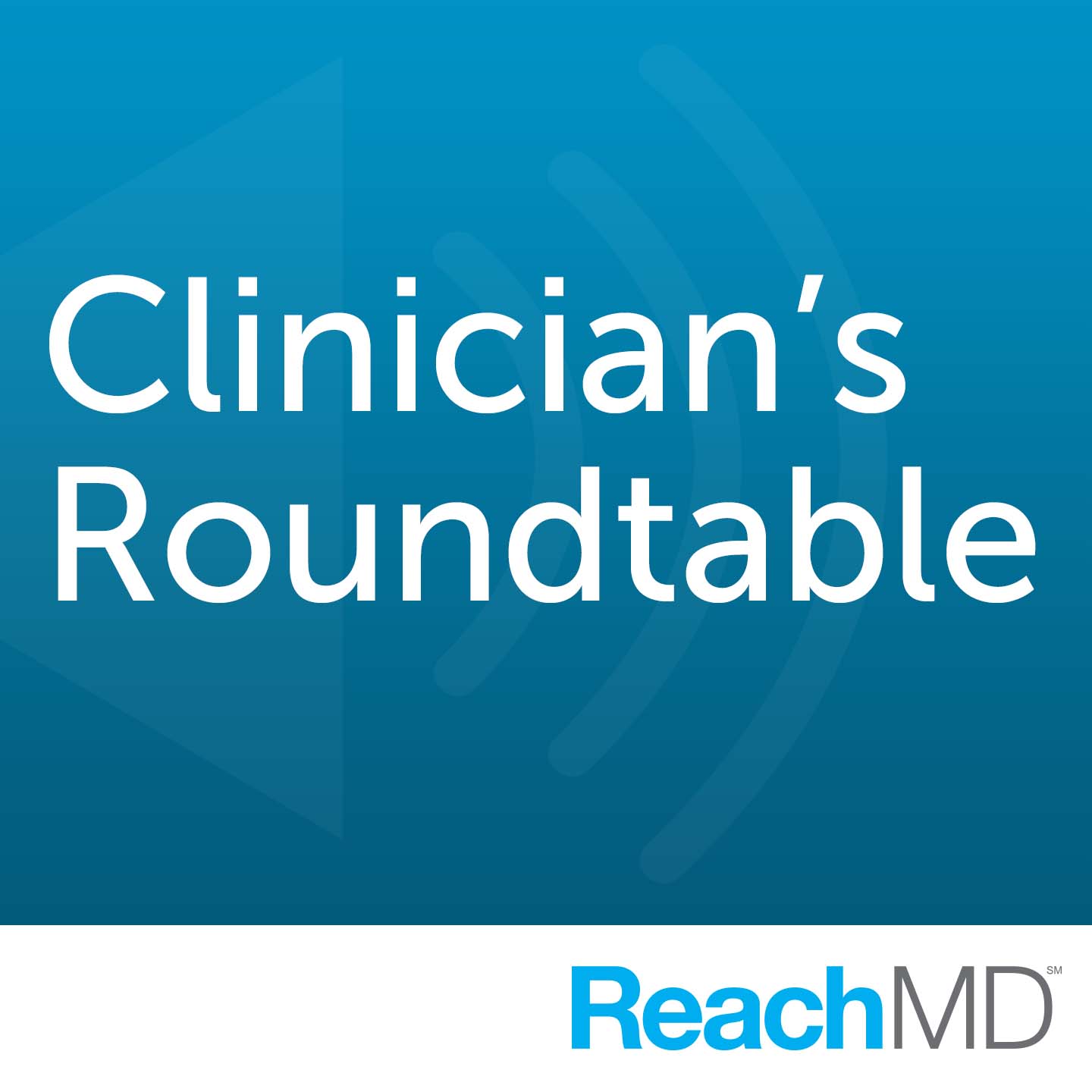

Clinician's Roundtable
ReachMD
Tune in to interviews with the top thought leaders in medicine exploring the clinical and professional issues that are foremost in the minds of the medical community. Join us at the Clinician's Roundtable for discussions on a vast range of topics that every medical professional should know about.
Episodes
Mentioned books

Jul 14, 2008 • 0sec
The Curious Lives of Cadavers
Host: Leslie P. Lundt, MD
Guest: Mary Roach
Remember the first time you walked into anatomy lab? For many of us, it was a defining moment in our medical careers. Have you ever thought about those cadavers? Has medical training become more sensitive to these brave souls that dedicated their bodies to science? Host Dr. Leslie Lundt welcomes Mary Roach, the acclaimed author of Stiff - The Curious Lives of Human Cadavers to discuss these issues.

Jul 14, 2008 • 0sec
Treating Depression in Breastfeeding Patients
Host: Leslie P. Lundt, MD
Guest: Samantha Meltzer-Brody, MD, MPH
When treating the depressed post-partum woman who is nursing, we have two patients - the depressed woman and her infant. How can we choose the safest medication for both? Dr. Samantha Meltzer-Brody, assistant professor in the department of psychiatry at University of North Carolina at Chapel Hill and the Co-Director of the Perinatal Psychiatry Program of the UNC Center for Women's Mood Disorders joins host Dr. Leslie Lundt to discuss treating depression in breast feeding women.

Jul 11, 2008 • 0sec
Foodborne Illness: In the Wake of Salmonella
Host: Jennifer Shu, MD, FAAP
Guest: Ian Williams, PhD
Salmonella infections transmitted by food have doubled in the past two decades. What is causing this increase? What foods are primarily to blame? How can physicians identify and treat the condition? Host Dr. Jennifer Shu speaks with Dr. Ian Williams, chief of the Centers for Disease Control and Prevention's OutbreakNet, a network of epidemiologists and other public health officials who investigate foodborne outbreaks and other enteric illnesses.

Jul 11, 2008 • 0sec
Probing Foodborne Outbreaks: 2008 Salmonella Aftermath
Host: Jennifer Shu, MD, FAAP
Guest: Ian Williams, PhD
The latest Salmonella concerns mark the United States' worst foodborne outbreak in over a decade. Exactly how are outbreaks of foodborne illness identified? How are specific food products linked to specific illnesses? How can we stop the spread of these outbreaks? Host Dr. Jennifer Shu examines these questions and more with Dr. Ian Williams, chief of the Centers for Disease Control and Prevention's OutbreakNet, a network of epidemiologists and other public health officials who investigate foodborne outbreaks and other enteric illnesses.

Jul 11, 2008 • 0sec
Palliative Care Resources on About.com
Host: Susan Dolan, RN, JD
Guest: Angela Morrow, RN
Over 750 topics are listed on About.com. During this segment, hear how Angela Morrow, a certified hospice and palliative care nurse, serves as a Guide for the palliative care site on About.com.

Jul 10, 2008 • 0sec
Talking to Patients Bound for Beijing
Host: Jennifer Shu, MD, FAAP
Guest: Phyllis Kozarsky, MD
An estimated 600,000 foreign visitors and athletes are expected to join up to two and a half million domestic volunteers and visitors at the 2008 Beijing Olympics. Patients will be seeking your advice on how to prepare for a safe and healthy visit to China. Dr. Phyllis Kozarsky, an expert consultant in the division of global migration and quarantine at the Centers for Disease Control and Prevention, and a professor of medicine and infectious diseases at Emory University School of Medicine, shares her perspective with host Dr. Jennifer Shu on talking to patients who are bound for Beijing. As a clinician, are you ready to give the right advice?

Jul 9, 2008 • 0sec
Should We Fear Patient Ranking Systems?
Host: Larry Kaskel, MD
Guest: Sam Nussbaum, MD
What is the value of a subjective patient ranking system? WellPoint's Chief Medical Officer Dr. Samuel Nussbaum joins us to better explain the goals of the physician ranking system that is being developed by Zagat and Wellpoint, Inc. Dr. Nussbaum says we should carefully distinguish between the technical quality of care and the office experience. The patient's perception of the office experience can teach us to do better. Hosted by Dr. Larry Kaskel.

Jul 9, 2008 • 0sec
Physician Opportunity: Bringing a New Product to Market
Host: Larry Kaskel, MD
Guest: Seth Baum, MD
What does it take to develop a new product? How about an evidence based vitamin line? Today's guest, Cardiologist Dr. Seth Baum, was frustrated with the bags of supplements his patients would bring to him. They were taking too many supplements and not getting the right vitamins and nutrients. In this segment hear about Dr. Baum's experience developing a vitamin line. Dr. Kaskel asks him about the business requirements including raising capital, manufacturing the product, ensuring quality and distribution. They also discuss the ethicality of recommending & selling a product to your patients in which you directly profit.

Jul 9, 2008 • 0sec
The #1 Most Trusted Profession
Host: Susan Dolan, RN, JD
Guest: Andrea Higham
What is the #1 most trusted profession? For that matter, which professions rank #2 through #5? Tune in as host Susan Dolan interviews Andrea Higham, Director of the Johnson & Johnson Campaign for Nursing's Future, on this interesting subject.

Jul 9, 2008 • 0sec
The Campaign for Nursing's Future
Host: Susan Dolan, RN, JD
Guest: Andrea Higham
The Johnson & Johnson Campaign for Nursing's Future is a multi-year, 50-million dollar national initiative with an ambitious slate of goals: enhance the image of the nursing profession, recruit new nurses and nursing faculty, and help retain practicing nurses. Campaign Director Andrea Higham provides details and describes the impact of this multi-faceted campaign on the nursing profession. Susan Dolan hosts.


